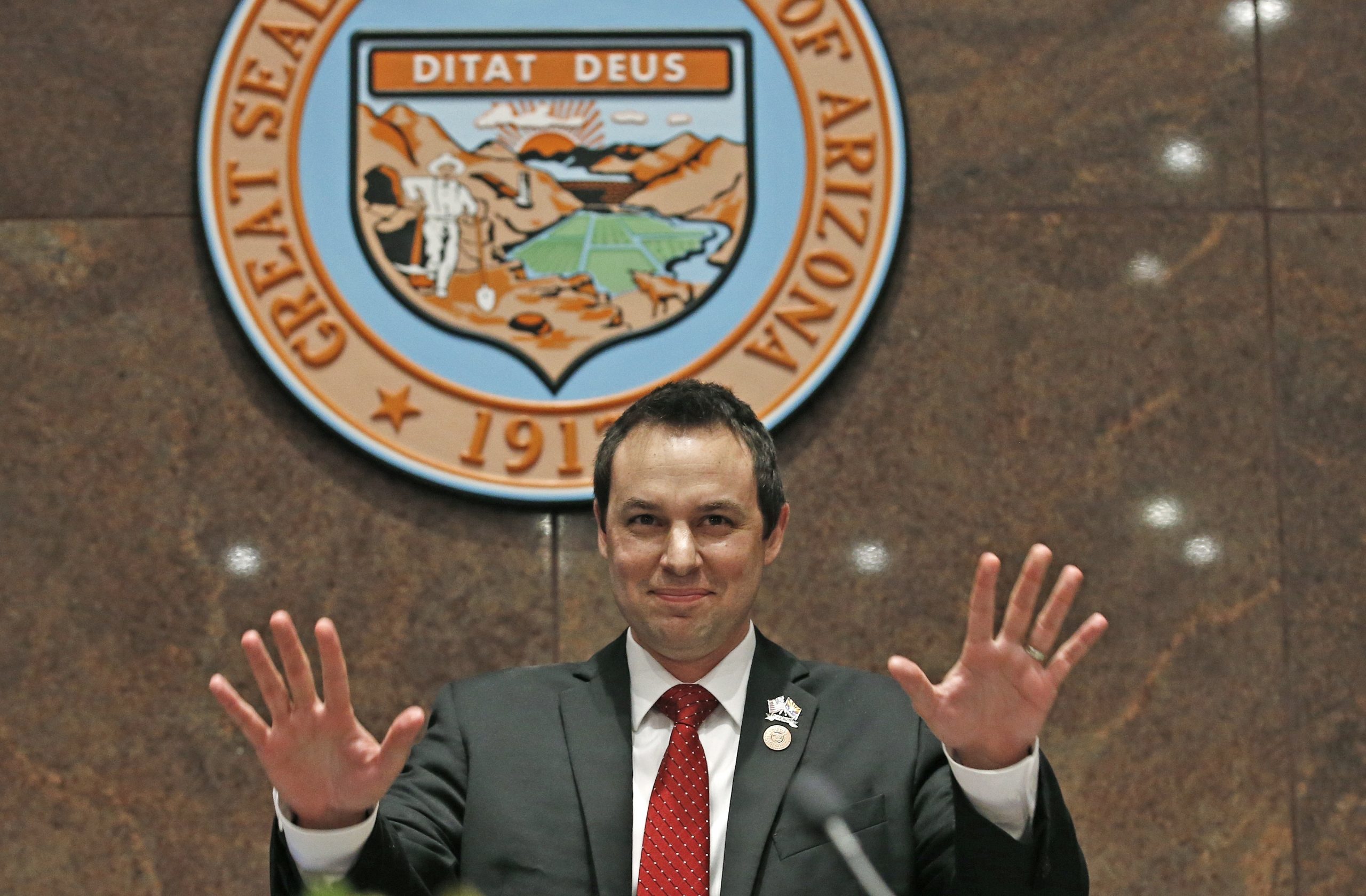A new law in Arizona is being targeted by Washington-based liberal advocacy groups that claim it will allow “targeted voter suppression.”
Voto Latino, Priorities USA, and the Arizona Alliance for Retired Americans filed the lawsuit against Senate Bill 1260, which Gov. Doug Ducey (R-AZ) signed after the state legislature passed it along party lines. The measure is slated to take effect on Sept. 24 and makes it a felony to aid someone in voter registration while knowing he or she is registered in another state.
But the latest challengers of the law allege its language is vague and includes subjective means to target volunteers and voting groups that provide mistaken voters a “mechanism for voting.”
JUSTICE DEPARTMENT SUES ARIZONA OVER CITIZENSHIP VOTER ID REQUIREMENTS
“The term ‘mechanism for voting’ is not defined, but the statute expressly emphasizes that it is broad enough to include the mere act of ‘forwarding an early ballot’ addressed to the voter,” the lawsuit states, warning that volunteers or a voter’s family member could be subject to Class 5 felony charges if they violate the new law.
Older voters, people of color, as well as young college students, could face negative effects from the law by “allowing third parties to engage in targeted voter suppression of those groups,” the trio of advocacy organizations wrote in the lawsuit.
“Or consider an Arizona parent who receives an early ballot in the mail for their child who just finished college out of state but is eligible to vote in Arizona. That parent could face felony charges if they forward the student’s early ballot to them if the student at some point registered to vote in their out-of-state college town––even if the student has no intention to, and never actually does, vote in two places,” challengers of the law added.

State Sen. J.D. Mesnard (R), who sponsored SB 1260, told the Washington Examiner on Thursday that the hypothetical scenario raised by the challengers is “factually wrong” and a “red herring.”
“There has to be intentionality in order for you to get in any kind of trouble, if you don’t know or you’re not trying to facilitate fraud, the wording of the bill … is that you have to knowingly be facilitating fraud,” Mesnard said.
The challengers also argue that multistate registration shouldn’t be prohibited for “good reason,” saying that people who move states do not typically think to cancel their registration from the state they move from and that “there often is no obvious or easy way to do so.”
But Mesnard vehemently disagrees, saying that determinations such as “where district boundaries go” are based on voter registration.
“And that has an impact on the whole system and everybody’s right to vote and the fairness of the process,” Mesnard added.
The filing by the three liberal advocacy groups came on the same day the Democratic National Committee and Arizona Democratic Party filed the fifth lawsuit targeting House Bill 2492, which requires proof of citizenship for residents to vote in presidential elections.
The Justice Department also filed a lawsuit in July, targeting the measure that is backed by state House Republicans.
CLICK HERE TO READ MORE FROM THE WASHINGTON EXAMINER
Voting rights proponents say the bill is unconstitutional in light of a 2013 Supreme Court ruling in a case that found Arizona can’t impose a proof-of-citizenship requirement on people who register to vote using federal forms. The ruling established a two-tiered system in which those who do not show proof of citizenship can only vote in federal elections in Arizona but not in state or local contests.
And while Voto Latino has not filed a lawsuit against HB 2492, the group lauded the DOJ’s action against the bill in a statement last month, calling it a “draconian proof-of-citizenship requirement” that would disenfranchise Arizona voters.

